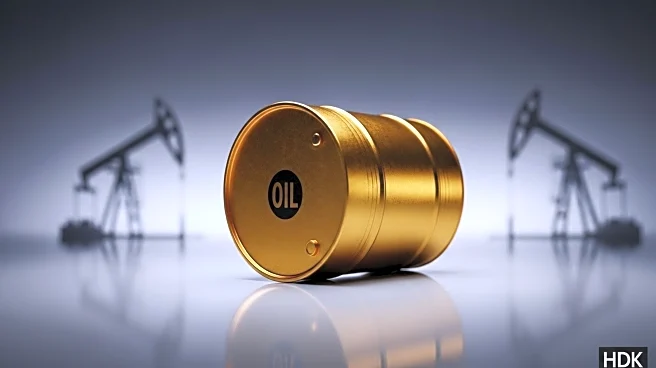What's Happening?
Oil prices have increased following OPEC+'s decision to implement a modest output hike starting in October. The group, which includes the Organization of the Petroleum Exporting Countries and allies like Russia, agreed to raise production by 137,000 barrels per day. This increase is smaller than previous hikes and comes amid potential new U.S. sanctions on Russian oil. The decision reflects a strategic shift by OPEC+ to prioritize market share over price stability, as Saudi Arabia adjusts its selling price for Arab Light crude to Asia.
Why It's Important?
The modest output increase by OPEC+ is crucial for global oil markets, particularly as the Northern Hemisphere approaches winter months, which typically see higher energy demand. The decision may help stabilize prices, but the potential for new U.S. sanctions on Russian oil could disrupt supply chains and impact global energy security. For the U.S., this development could influence domestic energy policies and affect consumer prices. The strategic pivot by OPEC+ signals a shift in market dynamics, with implications for international trade and geopolitical relations.
What's Next?
The oil market will closely monitor the impact of OPEC+'s production increase and any new sanctions on Russian oil. Traders and analysts will assess how these factors influence supply and demand dynamics. Additionally, the U.S. government's approach to sanctions could affect international relations and energy policies. Stakeholders in the oil industry will need to adapt to these changes, potentially leading to shifts in investment and production strategies.









